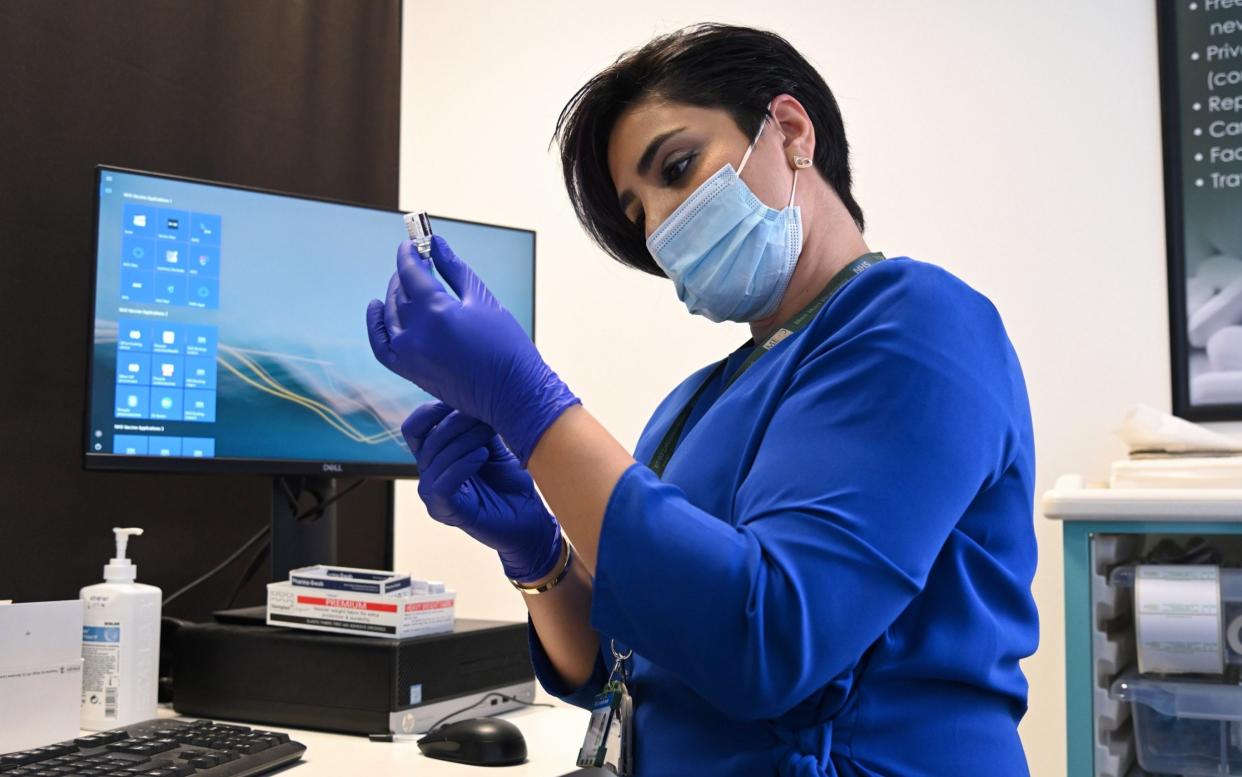'No urgent need' for Covid vaccine boosters, say European experts

European disease experts have said there is “no urgent need” for Covid booster shots as the continent diverges over the rollout of third jabs.
In a statement the European Centre for Disease Prevention and Control (ECDC) said all the vaccines authorised by the European Medicines Agency (EMA) - including AstraZeneca, Moderna and Pfizer jabs - provided a high level of protection against serious illness, hospitalisation and death. This are the main objectives of countries’ vaccination strategies.
This suggested there was “no urgent need for the administration of additional doses of vaccines to fully vaccinated individuals in the general population”, the centre said.
The statement came after the EMA gave the green light for booster doses of the Moderna vaccine to people over the age of 18.
Divergence over who is eligible for booster jabs has emerged between European countries over recent days.
Italy is likely to offer a third booster dose to the entire population from January, Pierpaolo Sileri, the deputy health minister said on Tuesday.
Currently a third dose is limited to people with serious medical conditions, the over 60s and health workers.
"It is most likely that a third dose will be necessary for everybody," Mr Sileri said. "I imagine the rest of the population [will follow] from January,” he told an Italian radio station.
Meanwhile in Switzerland booster shots will be given to those over the age of 65 but not the general population.
The recommendation is based on the Swiss medicine regulator's decision to approve booster vaccinations with mRNA vaccines from Pfizer/BioNtech and Moderna for high-risk patients, the country’s health and vaccination ministry said.
And in Spain - which has conducted one of the most successful vaccination campaigns in Europe - authorities have announced that those who received Johnson & Johnson's single-shot vaccine will be eligible for a third dose, on top of a booster campaign for the over 70s.
From November 15, around 2 million people in the country who had the J&J vaccine will get a booster shot, three months after their first vaccine, the health ministry said in a statement.
Meanwhile, immunology experts in the US are questioning the Biden administration’s push towards booster vaccines, saying they are not a silver bullet and there is no compelling evidence to recommend them for the general population.
Booster shots are currently available across the states to people 65 and older and people with underlying medical conditions, however the US government is keen to roll them out more widely as winter approaches.
While the vaccines have been highly effective in preventing serious illness and death, some government scientists have suggested that top-up shots are needed to keep immunity high, especially as the extremely contagious Delta variant can cause breakthrough infections among some who are fully vaccinated.
Others, more quietly, have been pointing to the limited data on the safety and efficacy of the booster jabs.
“I don’t think that we have evidence that everybody in those groups needs a booster today,” Dr Matthew Daley, senior investigator at Kaiser Permanente Colorado and a member of the Centers for Disease Control and Prevention (CDC) advisory committee, told the New York Times.
When the CDC committee reviewed evidence for the Pfizer-BioNTech booster in September, the advisers agreed unanimously only on extra shots for adults over age 65.
For the eligible groups, booster shots are recommended at least six months after receiving the second dose of Pfizer or Moderna’s vaccine.
The panel, however, rejected a broader recommendation of a booster for anyone 18-64 who is in an occupational or institutional setting where risk of Covid-19 transmission is high, such as health care workers. Several experts expressed concerns about the category being too broad and including some who may not receive much benefit from a booster shot.
The UK, which is more reliant on the AstraZeneca vaccine than the rest of Europe, is giving boosters to the over 50s, health workers and those in vulnerable groups.
Data from the UK’s Zoe Covid app has suggested that immunity wanes more quickly in those who have received the AZ vaccine. This shows protection against infection after two shots of Oxford-AstraZeneca drops from 77 per cent after one month to 67 per cent after five to six. For Pfizer, this fell from 88 to 74 per cent.
Protect yourself and your family by learning more about Global Health Security

